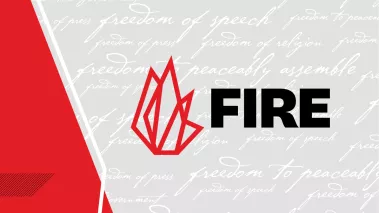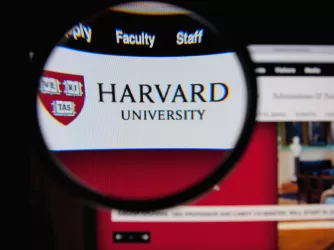Table of Contents
'State Hornet' on CSU - Sacramento's Red-Light Speech Codes

A recent article in The State Hornet, at California State University - Sacramento (Sac State), notes the university's poor rating—and the generally poor ratings of its California peers--in FIRE's 2011 Spotlight on Speech Codes report.
As The State Hornet points out in its front-page article, "Sac State received the red-light ranking along with Chico State, UC Santa Cruz and UC Davis, while other California universities such as UC Santa Barbara and UC Berkeley received a yellow light." The paper also points out that "64 percent of the 33 California university campuses received a red light," the lowest of the three ratings in FIRE's Spotlight database of college speech codes.
This has some at Sac State surprised:
Kimo Ah Yun, the new department chair of communication studies, was surprised by the study and said he did not see the campus as a place where he has seen substantial limitations on free speech.
Sac State confines demonstrations of free speech to the area in front of the University Library, according to Sac State policies.
Ah Yun said he thinks free speech is vital because it gives people the right to express opinions without concern for retribution, and he believes Sac State is a place where everyone can openly share ideas.
If Sac State really is to be "a place where everyone can openly share ideas," then the problem presented by limiting demonstrations to an area in front of Sac State's library should be readily apparent. While FIRE hasn't been able to find the exact free speech zone policy to which The State Hornet seems to be referring—perhaps it is not online?—we do note that Sac State's Amended Rules Regulating the Time, Place, and Manner of Individual Expression and Conduct on Campus state that "[f]or any public meeting, demonstration, rally, etc., held on University premises, advance reservations are required and the activity will be assigned to a specific designated area of campus." Such prior approval requirements are questionable enough, but if this policy amounts to limiting speech to a single area in front of Sac State's library, then the university has adopted a quite unworkable—and likely unconstitutional—policy.
If Sac State is indeed quarantining speech, let's hope the students are willing to fight it. As it is, the sentiment among the various students is in favor of more speech, even if they are not always sure of where its boundaries are:
Freshman engineering major Kayla Beal said she is unsure about the extent of free speech on campus. She said it depends on what it is about.
"Some people could offend other people," Beal said.
[...]
[Alumnus Jennon] Valentine-Martinez said there should not be a limit on what students can and cannot say as long as it is not threatening in nature.
"You can't just say ‘I'm going to blow up the university,'" Valentine-Martinez said.
Beal said she is for expanding areas that would allow free speech.
"It is important that everyone should get an opportunity," Beal said.
For many students, the issue comes down to how freedom of speech is conducted.
"It's being able to express yourself in a way that's not threatening or harassing, but allowing criticism to occur in a responsible dialogue," Valentine-Martinez said.
Beal should know that speech that "offend[s] other people" is of course overwhelmingly protected by the Constitution, not to mention inevitable. And both truly "threatening" and "harassing" expression, referred to by Valentine-Martinez, have strict legal definitions that leave little doubt that such behavior is not protected. (Here's Azhar discussing "true threats," and here's Adam discussing the definition of peer-on-peer harassment in the educational context at UC San Diego.)
Here, though, I fear that the students at Sac State—like so many others—have been led astray by Sac State's policies in coming to an understanding of free speech. Among other things, Sac State's policies prohibit "[b]ehavior that offends the dignity of anyone," and broadly define "sexual jokes or comments" as sexual harassment. Are these the definitions that have informed the students' working understanding of what passes for free speech on campus? If so, this is disappointing. Sac State is a public institution, bound by the First Amendment, and Sac State students enjoy robust First Amendment freedoms, guaranteed to them by law.
I'm glad to see that the sentiment in favor of free speech seems high at Sac State. I'm also glad that, given the widespread misunderstanding of free speech rights among students today, The State Hornet has done something that will hopefully make the students of Sac State give themselves a proper education in the Constitution.
Recent Articles
FIRE’s award-winning Newsdesk covers the free speech news you need to stay informed.

Revoking Harvard’s tax-exempt status will threaten all nonprofits

Grandpa’s advice for the new wave of American censors

FIRE POLL: Only 1/4 of Americans support deporting foreigners for pro-Palestinian views
